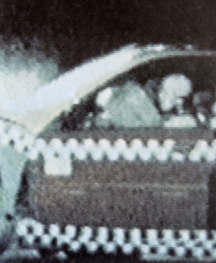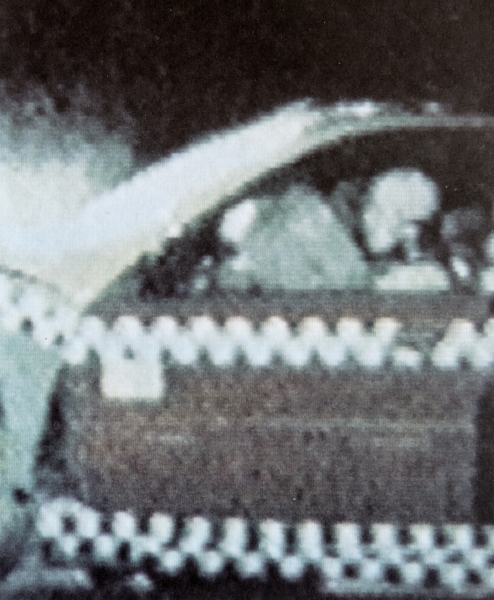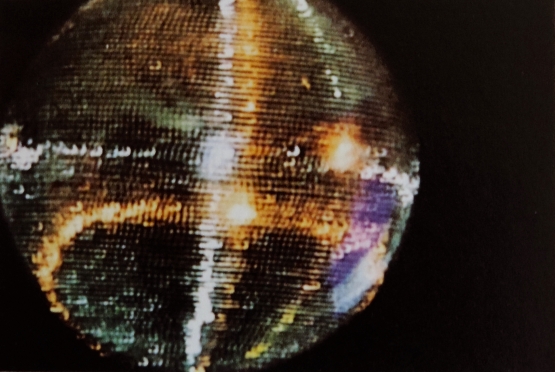ON PARTIES, TRAUMAS, PEOPLE AND GHOSTS
Pedro Lapa
Yes indeed, it's just what you are thinking! This is a veritable discotheque set up within the museum. It's all there: a ball of mirrors rotating in the centre of the room; a dance floor drawn out by a fixed rubber surface; speakers with drum'n'bass sound rhythms; a confused light given out by four video projectors, as well as the respective distorted projections onto the walls, or splintered in their encounter with the mirrored ball. The entertainment is left to the artists, who for some time serve drinks in the bar of the disco.
It is not, however, a representation of a discotheque, but is a reproduction, which is different. A representation would be the consequence of its presentation circumscribed to some medium or other (painting, sculpture, video, photography, etc.) and would then refer back to a referent. Neither are we in the presence of a simulation, made up of some signifiers which are more or less characteristic to the discotheque. Indeed, this work reproduces a discotheque which may be used as such, although the fact that it has been taken out of its context - being set up within a museum - is truly significant. The process is thus similar to that of the ready-made, yet the dislocated object carries within it a further, extremely significant, deviation which is opposed to the indifference to which the ready-made was subjected by a late-capitalist culture. The latter reifies the value of exchange of the object through the extra-value of the "art" signifier, thus carrying out a pathway which is the opposite to the value of use initially proposed by Marcel Duchamp.The deviation which, in this case, the discotheque undergoes takes away its random market character, granting it with a specific, ideologically based value of use. The images projected throughout the whole of the discotheque provide an unexpected communicative dimension with the world itself. The testimony which these images reveal about contradictory and cynical aspects of contemporary society, captured through zappings through the news and reports by several TV stations, allied to the fact that their presentation takes place in a locale for leisure and partying, consecrated by the end of the western century, gives rise to an extreme tension. The real is then perceived within a context of fun; its model of presentation defined by the standards of show-biz reduces it to a schizoid succession of signifiers within which everything is equivalent.
At the first moment, the mediation of a critical thought, which the information arouses in order to be able to signify, is blotted out and brutally submitted to that of the condition of a spectacle. However, awareness of this phenomenon becomes openly declared within this installation. The real is thus returned through images which appear to us as critical and complacent, affective and unaffected. Their succession forges a compulsive repetition which the reproduction of the discotheque sets within the visual codes of contemporary culture and its irruption becomes fantasmatic. The unreal aspect to which the real is sent only has a returning in its condition as the uncanny (Freud's Onheimlich), that is a traumatic form which entangles and affects the subject (Hal Foster). In this oscillation, within which the subject and the real are involved, that which returns is not so much a affecting of the real, circumscribed to a specific subject, but it is its conditions of presentation which turn out to be traumatic, to use Hal Foster's expression. Its tangibility is then in the discotheque, the place for reception and codification. The projecting of images bounced off the mirrored ball in the discotheque and the respective splintering are the most complete metaphor of this condition of visibility into which the perception of the real has turned in the late-capitalist societies.
With the dissemination of the real being guaranteed, only the devolving, that is, the repeating of the conditions of perception, may return it to us within its unimaginable violence, total amorality and declared chance nature. But it is clear that we will always have something to support us inside a discotheque, isn't it?












